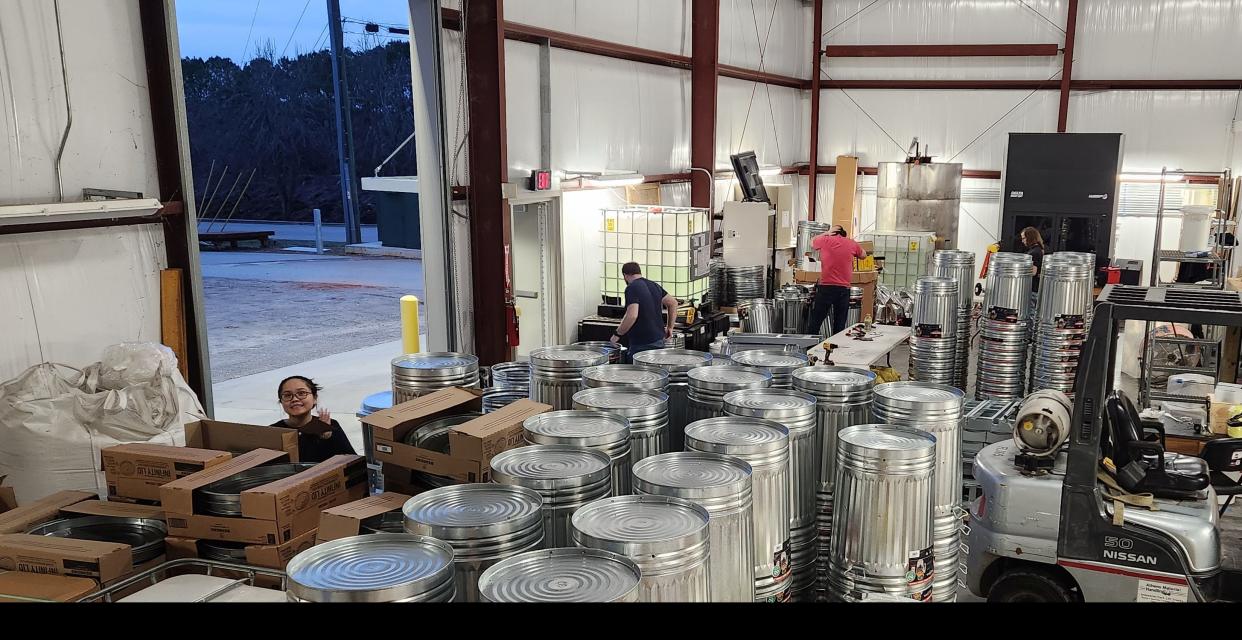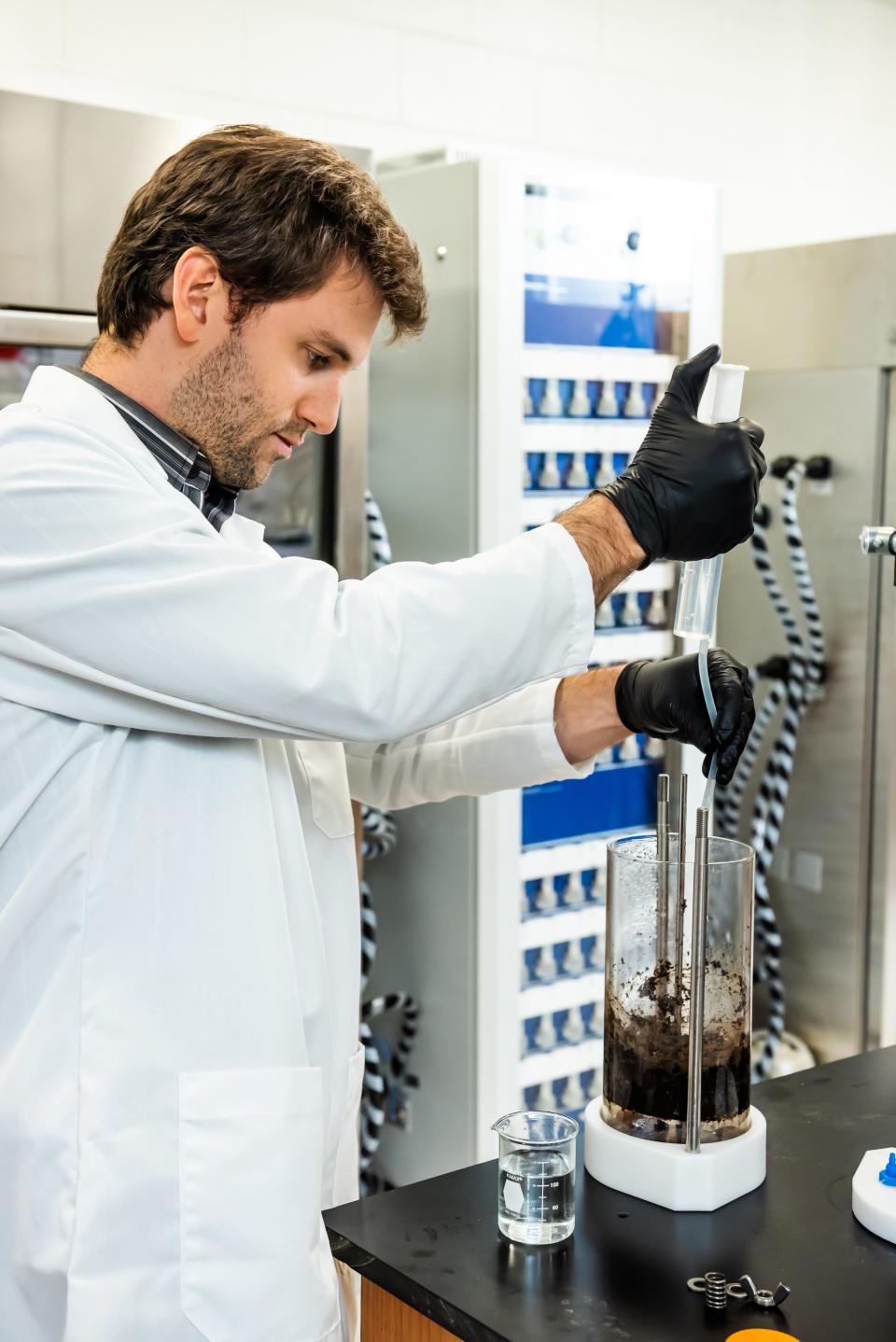UGA partners with Athens-Clarke County Solid Waste to test compost pilot program

A three-month compost pilot program has revealed several benefits and strong interest in the Athens community.
“We launched the program during the first week in February and ended the first week of May,” said Evan White, assistant research scientist in the New Materials Institute at the University of Georgia. “We had two-days-a-week pick up that included three neighborhoods in Athens representing 2,200 homes.”
White said more than 400 people volunteered to participate in the program.
“We wanted to get an idea of how much demand there was for such a program,” he said. “We also wanted to know how much people are willing to pay for it. Athens-Clarke County Solid Waste is running a survey for us. We're really anxious to see the results. We're going to come out with a full report probably at the end of the summer.”
Composting offers a way to use microbes to break down for organic matter, thus reducing the amount of methane released into the atmosphere. Composting can also enrich soil health and reduce the need for chemical fertilizers.

“The No. 1 benefit, especially if it's curbside, it's a direct way for families to participate in reducing their carbon footprint,” said White. “At the end of the day if people put their food waste into a separate bin from your recycling, the fate of that carbon won’t turn into methane, which is a greenhouse gas. Instead it’s converted into co2 (carbon dioxide).”
In Georgia, approximately 27 million tons of municipal solid waste was recovered in 2017 through composting, allowing for that waste to be diverted from landfills, according to experts with Drawndown Georgia.
“This is a more natural process,” said White. “It's basically a managed organic recycling program that harnesses nature to break down all those organic compounds."
Suki Janssen, solid waste director at Athens-Clarke County, was in the composting industry prior to partnering with UGA.
“We have been composting since 2010,” said Janssen. “We took over the compost processing from our public utilities department. They were composting biosolids, leaf and limb and they could no longer do it. So we got a permit to compost commercially. At our facility that we opened back in 2010, we compost biosolids, leaf and limb and now food scraps for the last several years.”

Janssen said partnering with UGA on their compost pilot program was a no-brainer.
“The University of Georgia came to us maybe a year ago and asked if we were interested in partnering with them,” said Janssen. “They received a grant from the Walmart Foundation. Part of the grant was used to see how well a residential compost collection program would work. Another portion was for them to design 32-gallon metal roll carts instead of plastic bins.”
Janssen said after the bins were ready, the next step was to find the right neighborhood.
“They worked with us to determine what area of our community would be a fit to pick up commercial compost,” she said. “We chose an area that we call Prince Avenue Corridor − Normaltown and Boulevard district residents. In all I think we’ve picked up 20 tons of food scraps or organic material.”
More: Venue for Athens commission meetings temporarily moving to more secure school district HQ
Participants were encouraged to compost all food scraps (fruit, vegetables, meat, processed food), hair (pet and human), compostable plant-based products (plates, cups, cutlery, clamshells, plates), and wax-coated cardboard.
Athens resident Stacy Smith was excited to participate in the program.
“I'm a backyard composter,” said 52-year-old. “But I haven’t had the time lately to do it. It’s nice to have curbside pickup. During the program I learned a lot about what you can and can’t compost.”
Janssen said the next steps are underway.
“We knew starting out we were gathering information to take back to our mayor and the commission,” she said. “We want to know if they just want the private sector to continue what they’re doing, which is offering it to those that are interested. It’ll be interesting to see what type of feedback we will receive from our elected officials.”
This reporting content is supported by a partnership with several funders and Journalism Funding Funding Partners.
Erica Van Buren is the climate change reporter for The Augusta Chronicle, part of the USA TODAY Network. Connect with her at EVanBuren@gannett.com or on X: @EricaVanBuren32.
This article originally appeared on Augusta Chronicle: UGA Compost pilot program reveals key benefits to composting

